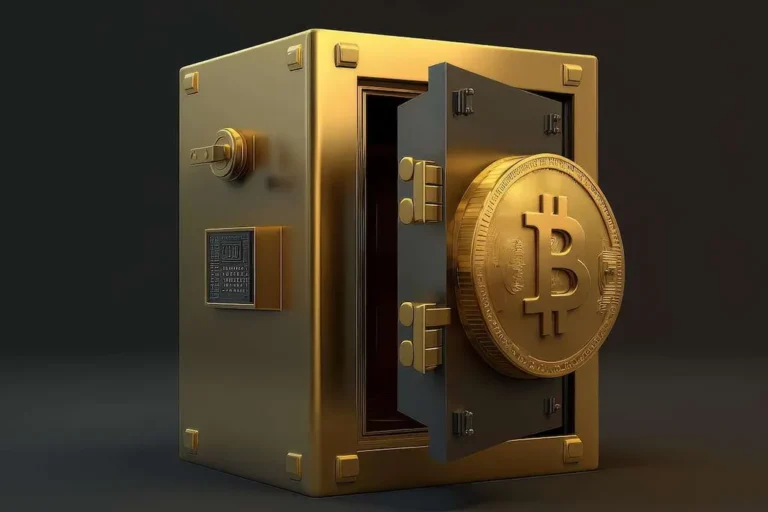The adoption of decentralized currencies raised questions about the mechanisms that keep tokens safe. Banks and other organizations store clients’ funds, serve as intermediaries during transactions, and facilitate tax reporting. The development of blockchain technology resulted in the widespread usage of crypto custody systems. Every asset holder can choose between different options to protect their tokens. Even though finding a trustworthy provider may be challenging, choosing a trustworthy solution allows investors to boost gains. In this guide, we will analyze time-tested ways to keep intangible assets under control and manage them effectively.
What Is a Crypto Custody?
The term refers to the process of protecting e-holdings from thieves. By entrusting tokens to reputable mediators, investors can be sure they won’t lose funds due to digital interference. Discovering secure crypto custody solutions is different from finding a safe bank. Such intermediaries do not store coins, however, all data is recorded on a public ledger. The task of a cryptocurrency custodian is to store secret keys and enable users to access tokens.
Despite the increasing popularity of e-money, major investors, including hedge funds and investment banks, are still wary of the industry. Their support is crucial for the future of virtual currencies, but they should work with custodians to maintain regulatory adherence. It explains the growing popularity of custodian services.
Authoritative providers that ensure the safety of crypto also cooperate with exchange platforms. While hot wallets ensure funds’ availability at any given moment, cold storage options allow custodians to protect assets from hackers by storing them on devices disconnected from the Internet.


Turnkey Brokerage Solution For Your Business
Get the most profitable fully licensed fx/crypto brokerage software or ready-to-operate business in 48 hours. Best-in-class web & mobile trading platforms, sales-driven CRM, full integration with MT4/5, and 150+ payment providers.
How Does Crypto Custody Work?
Keeping private keys secure may be daunting unless investors take the necessary precautions. In the world of traditional finance, banks function as custodians. They guarantee no intermediary can access funds stored in an account without authorization. In the cryptocurrency industry, holders can store assets by themselves. They need to utilize cryptographic keys to utilize tokens. Let’s consider the main types of crypto custody:
- Self-custody: Investors who choose this approach do not need to disclose the symmetric keys to their wallets. Only they have access to their funds, which means they should take the recommended steps to ensure their safety. Losing a cold wallet or forgetting the password means an investor will never be able to restore access to tokens.
- Reputable intermediaries: Large funds and investors who are just getting started entrust their funds to regulated organizations. It enables them to counter possible threats, avoid hefty penalties, and build clients’ loyalty.
Registered crypto custodian companies ensure the safety of private keys and allow holders to access investments without any obstacles. It makes these institutions similar to banks. Enhancing the safety of virtual assets becomes possible due to edgy technologies like multiparty computation (MPC). As the keys become a single point of access, they often become a target for attacks.
When registering an account on a reputable platform, users know that it follows anti-money laundering regulations and adheres to a KYC policy. There are different kinds of third-party custodians:
- Exchanges: Such platforms control user funds and may even utilize external vaults to improve the safety of tokens. However, when keeping assets on centralized exchanges, users do not have access to cryptographic keys. If a site gets hacked, its clients may lose funds.
- Certified managers: Like banks, these organizations operate under a license, which allows them to work legally and assist their clients with any issue they may face.
- Custodial banks: In the U.S., such banks provide services to cryptocurrency holders. Some work only with institutional organizations, while others set high thresholds for those who want to utilize their custody systems.
Cryptographic protocols ensure the safety of virtual currencies during transactions, while a cold crypto wallet remains an enticing option for those who want to access holdings at any time. However, intermediary services also remain in high demand.

Pros and Cons of Crypto Custody
While many investors believe that storing coins in a cold wallet is the safest option, it may be a less feasible alternative to licensed platforms. Self custody remains a safe choice for those who want to limit access to their holdings and protect them with a secure password.
Users who prefer this option retain control over assets and protect them from widespread threats. However, the key shortcoming of this approach is that users who lose their keys won’t be able to access the tokens. Besides, insuring such investments is impossible, so if anything happens to the coins, they will be lost forever.
Finding a trustworthy crypto custodial solution is the only option major investors use to remain compliant. This approach has multiple advantages:
- Third-party services have intuitive functionality and an extensive choice of options for those who want to utilize their holdings as they see fit.
- Licensed suppliers offer insurance on managed tokens.
- Some web-based platforms allow users to stack deposits and earn interest, making them a suitable choice who are looking for opportunities to earn passive income.
Nevertheless, this approach has noteworthy shortcomings:
- Investors have limited ways of accessing coins;
- A custodian may block access to assets or set a withdrawal limit;
- A platform may declare bankruptcy;
- Fees may increase.
As the world of decentralized currencies is still plagued by uncertainties, investors can lose money during volatility spikes. In such situations, controlling tokenized holdings without any assistance is the only way to avoid losses.
Why Does Crypto Need Custody Solutions?
Volatile prices, regulatory uncertainty, and a limited choice of secure platforms that keep funds safe hinder cryptocurrency adoption. Safeguarding virtual holdings is arduous without deploying advanced mechanisms. Alphanumeric strings facilitate finalizing transactions and accessing tokens. Malicious users often target these secret keys aiming to exploit potential vulnerabilities.
The industry’s growth depends on creating powerful crypto custody systems. Whether a holder decides to store these keys on paper, hard drives, or e-wallets, these options do not ensure the full safety of virtual holdings.
Digital asset custody diminishes the risk of losing assets. Individual and capital investors may lose their keys or unknowingly disclose important details that may compromise their tokens. Every exchange platform is liable for the stored assets. They invest in more advanced solutions to fulfill their obligations and protect clients from losses.
Utilizing third party custody solutions is necessary to meet regulatory requirements. The amended version of the Investment Advisers Act of 1940 states that institutional investors must store clients’ assets using officially registered custodians.
Major funds use licensed entities to meet regulatory requirements. Using crypto custody platforms, they can remain compliant. The future of the industry depends on the existence of organizations providing such financial services, as such entities foster trust and expedite adoption.






